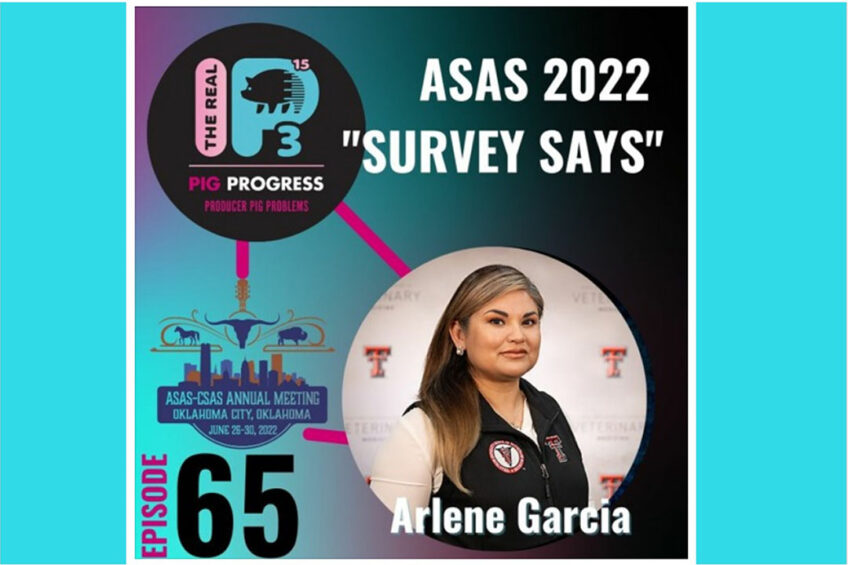Podcast: ASAS 2022 Special – Survey Says

In this 65th episode of the Real P3 podcast, Dr Casey Bradley kicks off a series featuring swine research that was presented at the American Association of Animal Science (ASAS) Annual Meeting in the US in June. This episode features animal behaviour and welfare specialist, Dr Arlene Garcia, who talks about pig euthanasia.
The Real P3 podcast series is an initiative where pork professionals from around the globe share their thoughts, insights, and solutions to their day-to-day challenges in the pig farming and production industry.
Garcia is not new to the Real P3 Podcast and was featured in an earlier episode on employee training and its impact on pig welfare. In this episode, Garcia discusses her grant proposal to the National Pork Board to identify barriers in timely euthanasia.
Surveys amongst staff on pig farms
Almost all individuals on the farm are responsible for euthanasia in their day-day roles, says Garcia. She talks to Bradley about the surveys that she has conducted that have brought to light some interesting facts about employees and caretakers on pig farms in the US, and relate back to euthanasia, the welfare of the pig and the mental health of the workers.
Hispanic caretakers
There are many Hispanic employees in the swine field, mostly from Mexico. The surveys conducted by Garcia aimed to identify any cultural barriers, or anything that would indicate why timely euthanasia might not be conducted. The objectives were 2-fold: to develop and validate surveys commonly used in shelter medicine on Hispanic caretaker/worker attitudes toward timely euthanasia, and; to assess the Hispanic caretakers using those surveys to determine the specific barriers associated with timely euthanasia.
Some questions included:
- What is your level of education?
- Have you euthanised pigs in the past?
- How many years of experience do you have with pigs?
- Would you feel more comfortable if someone else identified the pig that needed to be euthanised, and then you euthanized it, or would you prefer the opposite so that you would identify the pig and someone else would euthanise it?
Some insights
Garcia shares many interesting insights during this podcast, including the fact that the majority of the staff working on the farms have a high level of education with many indicating that they were veterinarians (57%), engineers, zoologists. In fact, some 84% had a university degree or higher level of education. Income varied between US$19,000 and US$45,000 per year.
Mass euthanasia/depopulation and a one health / one welfare approach
Garcia talks about the purpose of her work, which is to gather “preliminary data to show that we really need to focus on a one health or one welfare approach” relating tho this work. “Having this data, I can show that there is a mental health aspect to euthanasia that we really do need to focus on,” she said, highlighting the negative affect on the mental health of employees. This data, says Garcia, will be used for her to develop a grant proposal that will focus on identifying training procedures to mass depopulate.
Preparing staff and training them appropriately for mass depopulation, they will be able to conduct the task more confidently and correctly, but they may still suffer from some form of post-traumatic stress associated to having done that job. The next step, then, is to develop a type of therapy to help the workers to deal with this. The mental health of the workers and the welfare of the animals will therefore be improved.
Methods and techniques
Garcia also takes the listeners through her thoughts around the methods and techniques of euthanasia, and which she feels is currently best.











